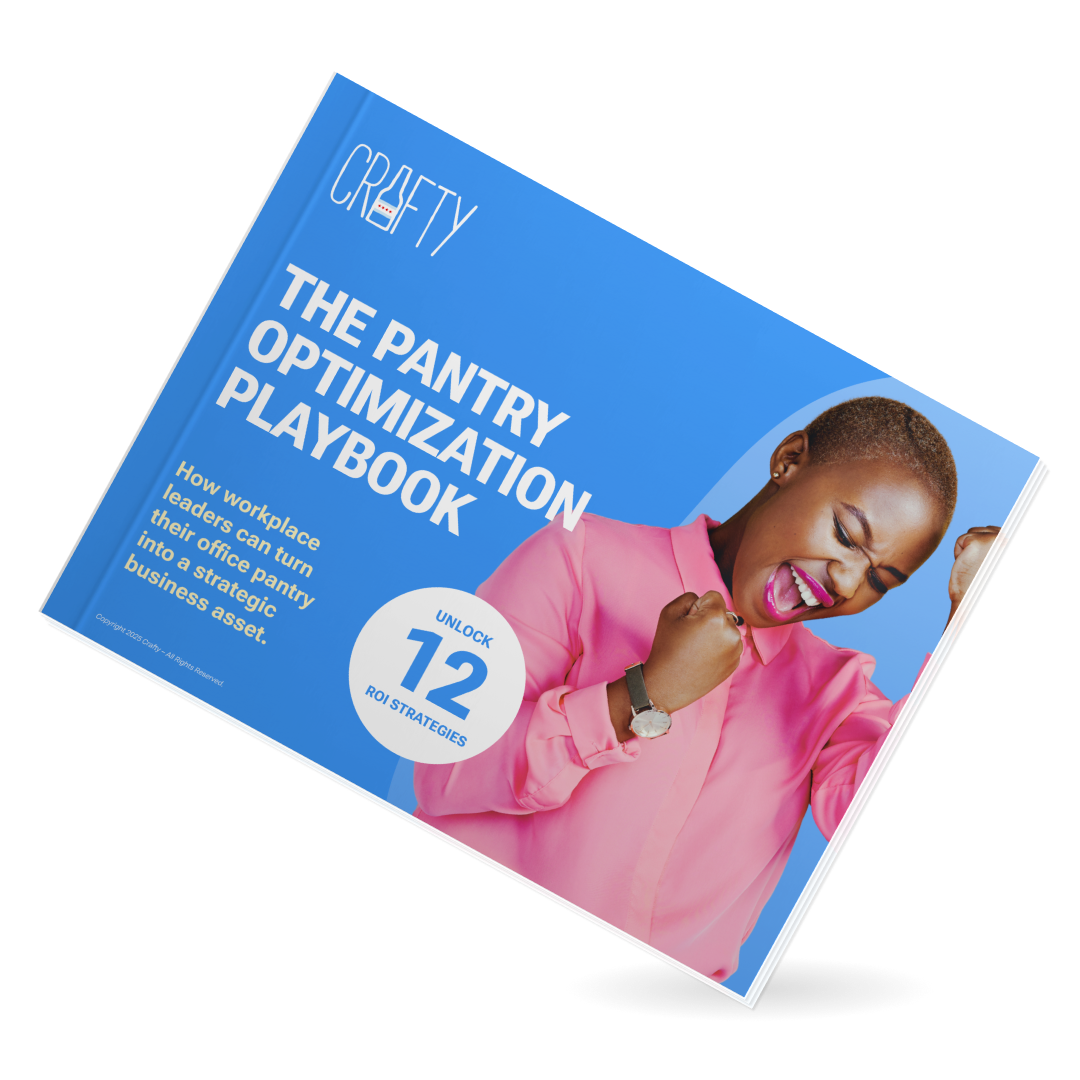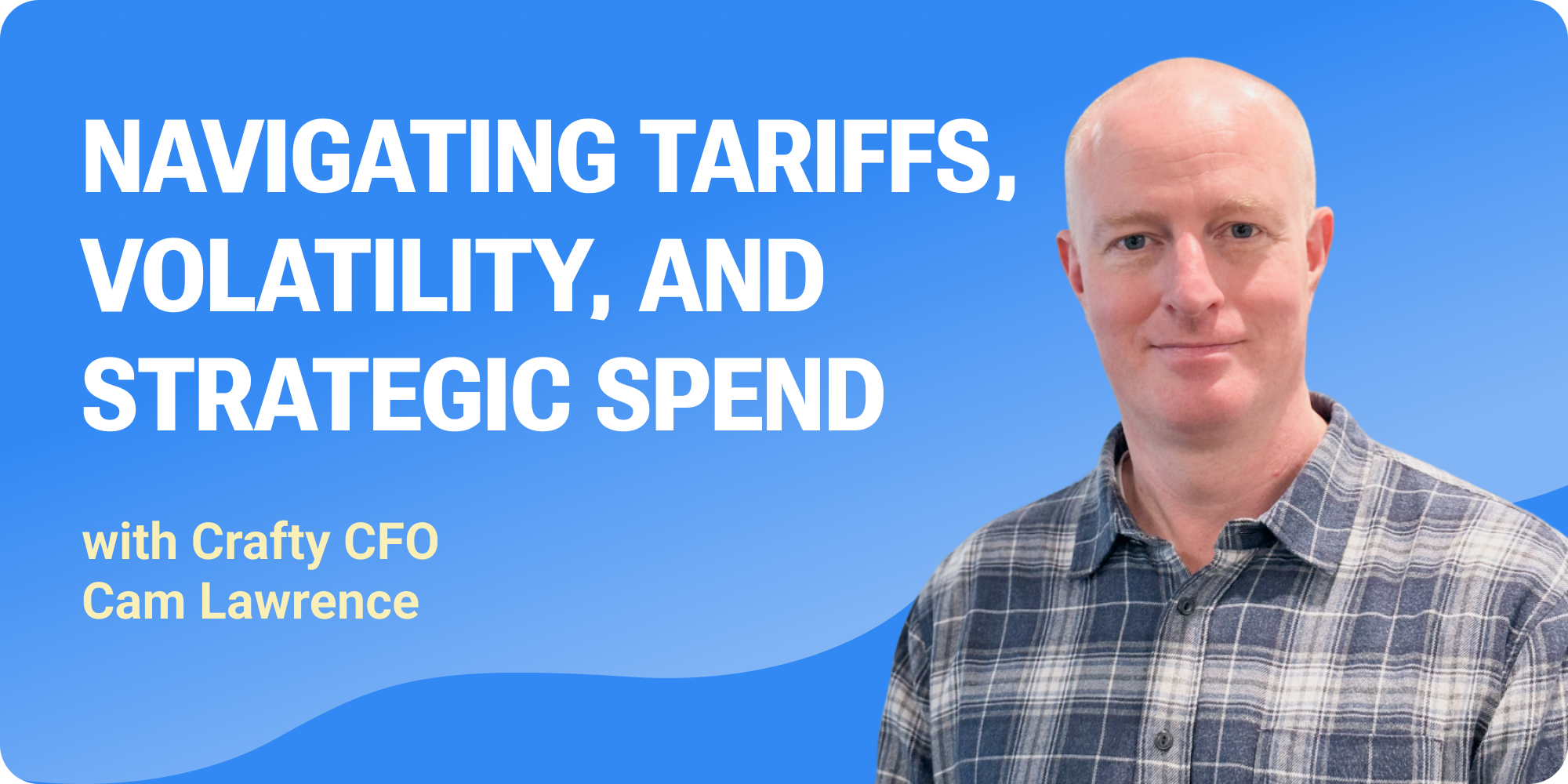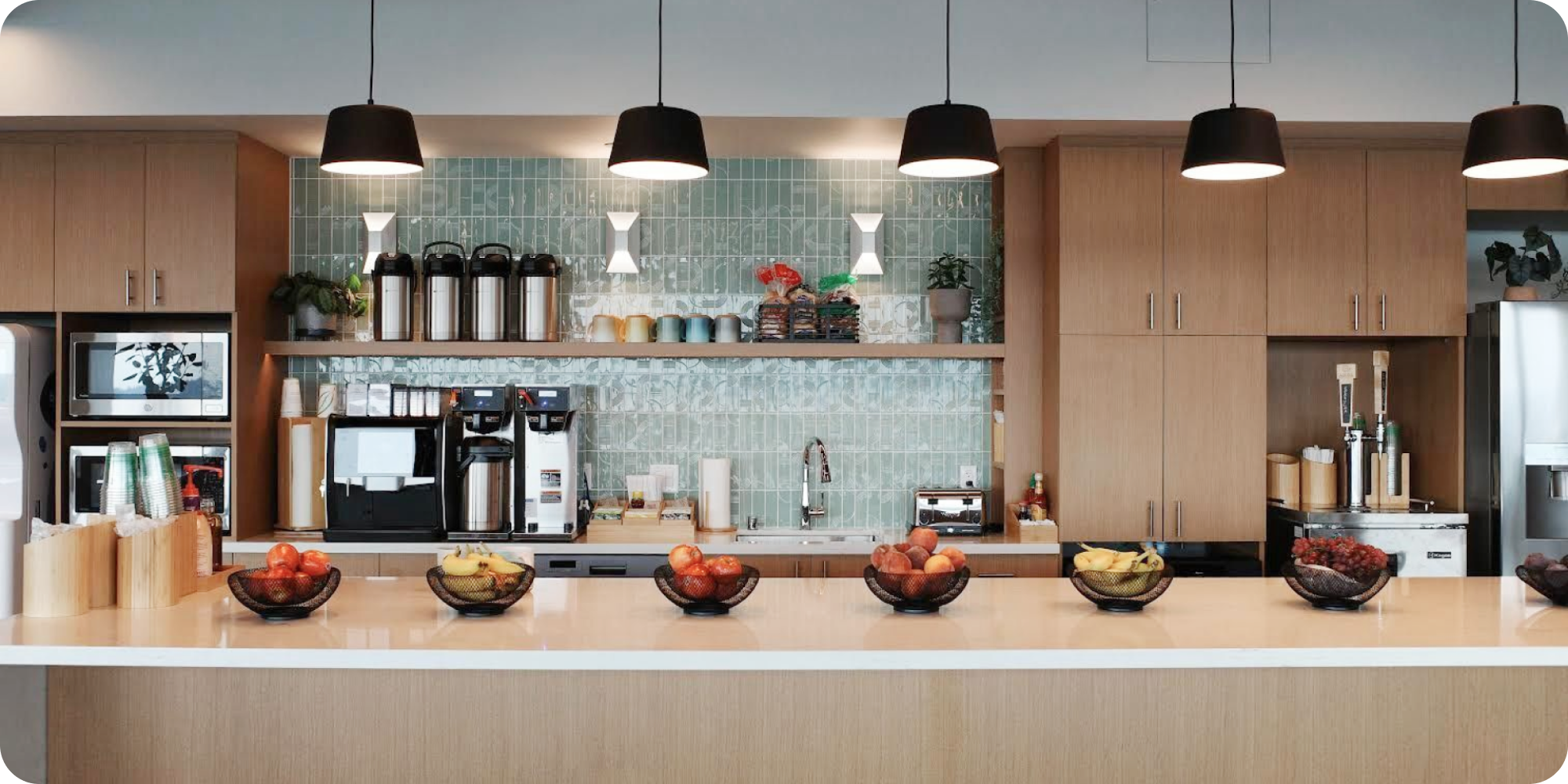Cameron Lawrence is Crafty’s first Chief Financial Officer (CFO), overseeing the company’s financial operations, strategic planning, and capital market initiatives. He brings over two decades of financial leadership experience across retail, technology, and e-commerce industries. Before Crafty, he served as CEO and CFO at Newlab, CFO at GNC, held executive roles at Ondine Biomedical Inc., and PNI Digital Media Ltd during its acquisition by Staples Inc. His expertise in financial strategy, capital markets, and operational efficiency supports Crafty’s continued national expansion.
Your Workplace Food Program Just Became a CFO Conversation
What the One Big Beautiful Bill's 2026 tax code update means for office snacks, workplace culture, and financial compliance.
✍️ Written by Nathan Rosenstock and Cam Lawrence
🕚 5-Minute Read • Updated Friday, August 15, 2025
.png)
The 2026 tax law changes aren’t a niche accounting update. They’re a strategic inflection point for every workplace and finance leader managing office food and beverage programs. Starting January 1, pantry items like coffee, snacks, and on-site meals will no longer be tax deductible under Section 112024 of the One Big Beautiful Bill, forcing companies to rethink how they account for, manage, and invest in workplace F&B.
Financial visibility and program-level reporting are no longer “nice-to-haves”—they’re essential tools for compliance, culture, and cost control. This is especially true in areas like office snacks and catering, where the lines between perks, operations, and tax treatment have officially blurred.
To help companies prepare for this shift, and turn compliance risk into a workplace advantage, we sat down with Crafty CFO Cam Lawrence.
With decades of experience guiding high-growth companies through complex financial and regulatory landscapes, Cam shares why the new tax law is a pivotal moment for CFOs, workplace teams, and culture-forward companies alike.
Here’s what we covered:
- What does the One Big Beautiful Bill say about office snack programs?
- Will companies really stop offering free office snacks in 2026?
- How can companies manage workplace food programs under new 2026 tax rules?
- How should companies split office food expenses under the 2026 tax changes?
- How can companies manage workplace food programs under new 2026 tax rules?
- How should companies separate deductible and non-deductible office expenses in 2026?
- What steps should companies take now to prepare for 2026 office tax changes?
Q: What does the One Big Beautiful Bill say about office snack programs?
Starting January 1, 2026, new tax rules will change how companies account for food and beverage spend at work.
Under Section 112024 of the One Big Beautiful Bill, pantry items like coffee, snacks, and on-site catered meals will no longer be tax deductible. Cleaning supplies, cups, and paper towels? Still deductible.
This isn’t just a tax code update. It’s a shift in how companies think about workplace investment, financial control, and employee experience.
UNLOCK MORE ROI FROM YOUR PANTRY
This playbook outlines 12 proven strategies to create efficiencies, reduce waste, maximize spend, and drive a quality experience that accelerates your organization.
Q: Will companies really stop offering free office snacks in 2026?
The headlines say snacks are going away, but that’s not the real story. Over the past few weeks, the media has been focused on the “end of free office snacks”:
Fortune: “Trump’s tax law could spell the end of free snacks at work.”
Delish: “Say Goodbye to Free Office Snacks.”
Quartz: “Trump’s tax bill removes a major incentive for free snacks at work.”
But cutting snacks isn’t the smartest takeaway, and it’s not the strategy forward-thinking companies are pursuing.
For employers focused on attracting and retaining top talent, food and beverage isn’t just a perk, it’s part of a world-class workplace experience. It’s about connection, culture, and giving people a reason to choose the office over working from home.
The real question isn’t:
"Should we cut snacks?"
It’s: "How do we manage these programs smarter (with full financial visibility) so we can keep investing in the workplace experience that matters?"
Q: How can companies manage workplace food programs under new 2026 tax rules?
The 2026 tax shift makes financial clarity and control non-negotiable. Crafty’s platform lets you manage food, beverage, and supplies with the rigor today’s finance teams expect, so you can keep investing in culture, without introducing compliance risk.
Q: How should companies split office food expenses under the 2026 tax changes?
You may be thinking the financial risk is: one Invoice, two tax treatments. Here’s where most finance teams will get stuck:
-
Most vendors send one invoice for everything: snacks, paper goods, cleaning supplies, catering.
-
Most accounting systems track spend at the invoice level, not the item level
But starting in 2026, you’ll need to split that spend with surgical precision:
|
Category |
Deductible? |
|
Coffee, Snacks, Meals |
❌ No |
|
Cleaning Supplies, Paper Towels, Soap |
✅ Yes |
If you don’t have the tools to do this properly, you’re either:
- Overpaying taxes by missing deductions, or
- Risking penalties by deducting what you shouldn’t
At a 21% corporate tax rate, small mistakes add up fast.
Q: How can companies manage workplace food programs under new 2026 tax rules?
Crafty was built for this exact scenario.
Our platform gives you line-item, subcategory-level reporting on every order:
- Pantry → Non-deductible
- Catering → Non-deductible
- Supplies → Deductible
With Crafty, there’s no gray area, no spreadsheet splits, and no tax-time scrambling. And now, with our expanded Staples partnership, that clarity covers everything from snacks to soap.
Q: How should companies separate deductible and non-deductible office expenses in 2026?
The new tax code forces a rethink of how companies manage office spend. But cutting culture isn’t the answer.
The answer is control, visibility, and smarter strategy.
Crafty’s platform helps you:
- Optimize your workplace program, invest in what matters most to your team
- Make smarter financial decisions, with clean reporting and real-time data
- Future-proof your operations, so you’re ready for whatever comes next
Because great workplaces don’t happen by accident. And neither does great financial management.
Q: What steps should companies take now to prepare for 2026 office tax changes?
The Crafty Platform purpose-built to help companies manage this shift.We can:
- Audit your current F&B reporting for 2026 readiness
- Estimate your potential tax exposure under the new rules
- Benchmark your program against peers to identify smarter spend opportunities
CRAFT
A BETTER
WORKPLACE
Elevate your office food and beverage program with enhanced services managed in one innovative, centralized platform.




